In Loving Memory of Dr. Dennis G Smith (BI 58)
/BI 58 is a special episode in memory of my late husband Dr. Dennis G Smith who died unexpected on July 25th, 2015.
Read More| ABOUT | SHOW NOTES | EPISODE LIST | GUEST LIST | TRANSCRIPTS | BIBLIOGRAPHY |
|---|
BI 58 is a special episode in memory of my late husband Dr. Dennis G Smith who died unexpected on July 25th, 2015.
Read MoreIn July 2014 I started a Fellowship in Palliative Medicine. Episode 56 of Books and Ideas is an interview with Dr. Amos Bailey, a respected pioneer in the field.
Read MoreEpisode 55 of Books and Ideas is an interview with Dr. John Ratey, co-author of Go Wild: Free Your Body and Mind from the Afflictions of Civilization. Dr. Ratey has also been featured several times on the Brain Science Podcast. He is an expert on the brain benefits of exercise.
Read More
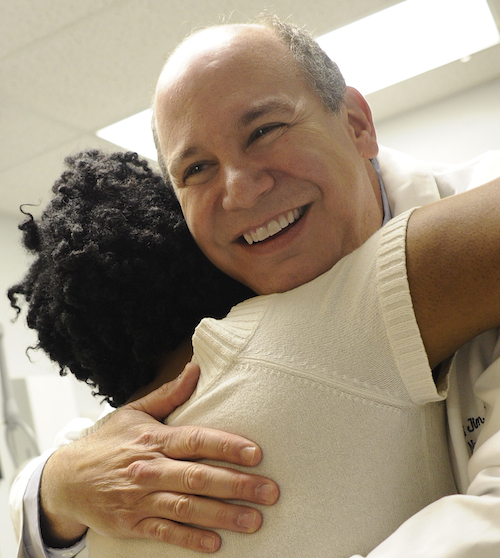 Michael Sagg, MD (click to listen)Episode 54 of Books and Ideas is an interview with Dr. Michael Saag, one of the pioneers in the battle against HIV-AIDS and author of the provocative new book Positive: One Doctor's Personal Encounters with Death, Life, and the US Healthcare System. When I asked him why he wrote his book he said bluntly "Because I am angry!"
Michael Sagg, MD (click to listen)Episode 54 of Books and Ideas is an interview with Dr. Michael Saag, one of the pioneers in the battle against HIV-AIDS and author of the provocative new book Positive: One Doctor's Personal Encounters with Death, Life, and the US Healthcare System. When I asked him why he wrote his book he said bluntly "Because I am angry!"
Saag shares the frustration of most American physicians who struggle with the current chaos that we call a healthcare "system." As he notes on page 2 of Positive, “over three decades of unparalleled advances in science and healing, so much about practicing medicine seems to have gotten worse. Medical professionals’ time with patients has decreased while the workload had increased. The cost of patient care has risen by every measure, while insurers appear to profit more and help less.”
In Positive Dr. Saag blends the inside story of how HIV-AIDS was transformed from a death sentence to a manageable chronic medical condition with a candid discussion of our sytems failings. He recognizes that those of us who want to see real change face an uphill battle against powerful, (and rich) entrenched interests who are profiting from the current chaos, but it is his hope that Positive will motivate physicians and patients to use the actvisim that helped spur success against AIDS as an inspiration to fight together for change.
Listen to Episode 54 of Books and Ideas
Episode Transcript (Download PDF)
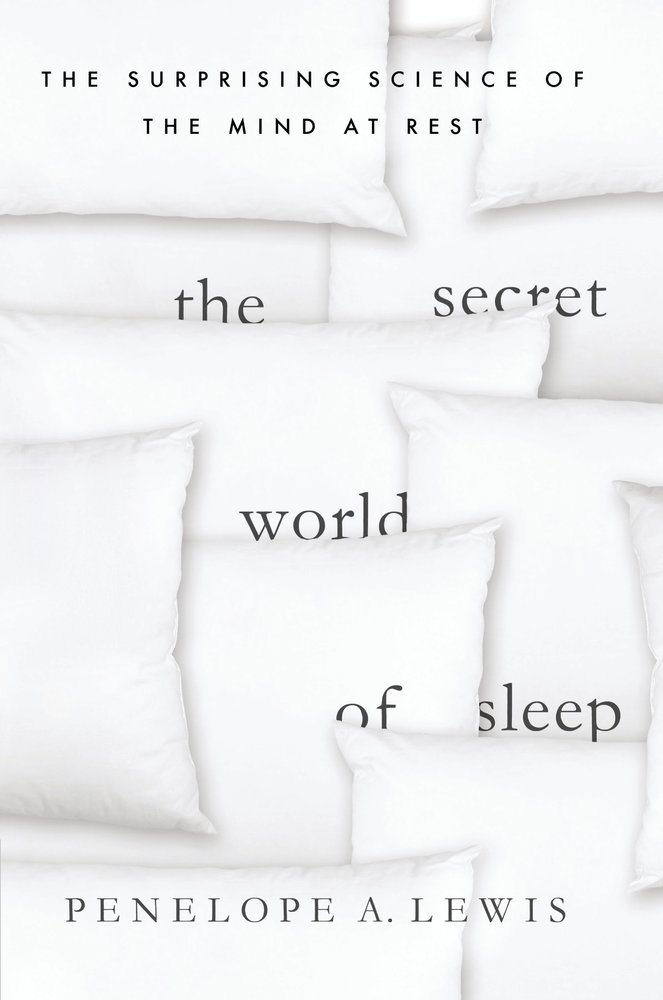 The latest episode of the Brain Science Podcast (BSP 107) is an interview with Dr. Penelope Lewis, author of The Secret World of Sleep: The Surprising Science of the Mind at Rest.
The latest episode of the Brain Science Podcast (BSP 107) is an interview with Dr. Penelope Lewis, author of The Secret World of Sleep: The Surprising Science of the Mind at Rest.
Click here to play the interview.
Click here for the full show notes and episode transcript.
 The latest episode of Books and Ideas (BI 53) is an interview with Rebecca Hale, president of the American Humanist Association. We explore the basic tenets of humanism and also discuss the particular challenges facing humanists in the United States.
The latest episode of Books and Ideas (BI 53) is an interview with Rebecca Hale, president of the American Humanist Association. We explore the basic tenets of humanism and also discuss the particular challenges facing humanists in the United States.
Hale describes humanism as "a life philosophy based on personal responsibility: humans made the problems in the world, and it's up to us to take responsibility to fix them, so that we leave the planet better than we found it."
Listen to Episode 53 of Books and Ideas (right click to download mp3)
Free Episode Transcript (Download PDF)
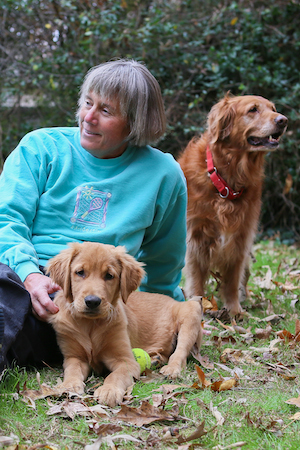 Ginger Campbell with Rusty and GretaEarlier this month my Brain Science Podcast celebrated its seventh anniversary. I haven't been doing a very good job of updating this website in recent months, but I wanted to take a moment to look back at 2013. While I only published two episodes of Books and Ideas, I did publish 12 episodes of the Brain Science Podcast and I am looking forward to some major changes in 2014.
Ginger Campbell with Rusty and GretaEarlier this month my Brain Science Podcast celebrated its seventh anniversary. I haven't been doing a very good job of updating this website in recent months, but I wanted to take a moment to look back at 2013. While I only published two episodes of Books and Ideas, I did publish 12 episodes of the Brain Science Podcast and I am looking forward to some major changes in 2014.
 BSP 103 featured the return of Olaf Sporns who was also interviewed back in BSP 74. Last month we talked about his most recent book Discovering the Human Connectome.
BSP 103 featured the return of Olaf Sporns who was also interviewed back in BSP 74. Last month we talked about his most recent book Discovering the Human Connectome.
BSP 104 is our seventh annual review episode, which highlights the main ideas that we explored in 2013. I also announced that beginning on December 30, 2013 I will be offering a Premium Subscription. The most recent 25 episodes of the Brain Science Podcast will remain free while older episodes and episode transcripts will be available via subscription. Subscribers will get unlimited access to the entire library of content while individual episodes and transcripts can be purchased on the BSP website.
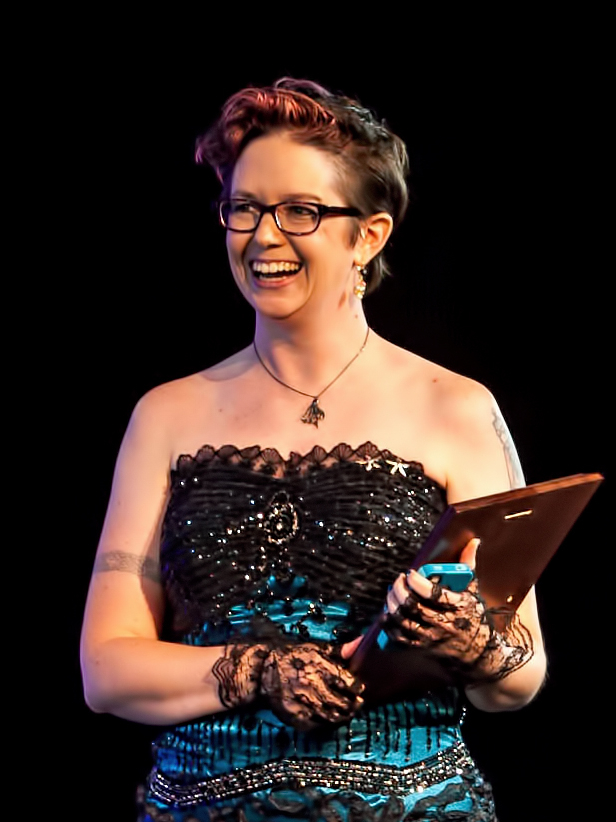 Mur Lafferty (photo by Philip Peterson)Mur Lafferty inspired me to start podcasting back in 2006, so I am very proud that she recently won the prestigious John W. Campbell Award at this year's Hugos Celebration. Her latest novel The Shambling Guide to New York City is also garnering well-deserved praise.
Mur Lafferty (photo by Philip Peterson)Mur Lafferty inspired me to start podcasting back in 2006, so I am very proud that she recently won the prestigious John W. Campbell Award at this year's Hugos Celebration. Her latest novel The Shambling Guide to New York City is also garnering well-deserved praise.
Mur was my guest way back in Episode 17 of my Books and Ideas podcast so I am very pleased to have her back on for Episode 52. We talked about her writing career and what she has learned along the way. Mur continues to produce her long-running podcast I Should Be Writing, which is a must listen for all aspiring fiction writers.
Listen to Episode 52 of Books and Ideas
Episode Transcript (Download PDF)
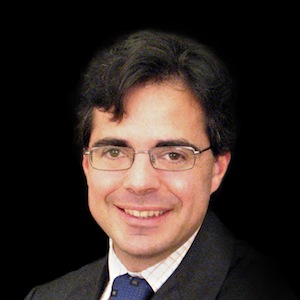 Alvaro FernandezLast month I posted episode 100 of the Brain Science Podcast. To celebrate this milestone I supplemented the discussion of Brain Fitness with Alvaro Fernandez with feedback from listeners.
Alvaro FernandezLast month I posted episode 100 of the Brain Science Podcast. To celebrate this milestone I supplemented the discussion of Brain Fitness with Alvaro Fernandez with feedback from listeners.
Visit the Brain Science Podcast website for the full show notes and free episode transcript.
Comment: During the interview with Alvaro Fernandez he talked about the upcoming SharpBrains Virtual Summit, which is scheduled for September 19-20. Fans of the Brain Science Podcast have been offered a 25% discount. Just use the code brainpodcast when you register.
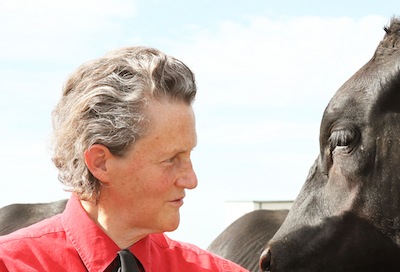 photo by Rosalie WinwardLast month in BSP 98 I reviewed Temple Grandin's latest book The Autistic Brain: Thinking Across the Spectrum. That podcast focused on the current science, but this month's follow up interview (BSP 99) is a little different. It focuses on Dr. Grandin's practical advice for living with autism. Besides emphasizing the need for more research into the sensory problems that are common in autism and applying the recent discoveries about brain plasticity. Dr. Grandin believes very strongly in nurturing strengths while accommodating weaknesses. She said that it is very important that "we accommadate weaknesses in a way that is enabling." She is particularly worried that many young people are not being taught the social skills they need to succeed in a work environment, even thought they have valuable talents to contribute.
photo by Rosalie WinwardLast month in BSP 98 I reviewed Temple Grandin's latest book The Autistic Brain: Thinking Across the Spectrum. That podcast focused on the current science, but this month's follow up interview (BSP 99) is a little different. It focuses on Dr. Grandin's practical advice for living with autism. Besides emphasizing the need for more research into the sensory problems that are common in autism and applying the recent discoveries about brain plasticity. Dr. Grandin believes very strongly in nurturing strengths while accommodating weaknesses. She said that it is very important that "we accommadate weaknesses in a way that is enabling." She is particularly worried that many young people are not being taught the social skills they need to succeed in a work environment, even thought they have valuable talents to contribute.
In my opinion, Dr. Grandin's advice carries extra weight because her personal example shows how an autistic person can make a unique contribution if given extensive training and support.
Listen to Dr. Grandin's interview.
Visit Brain Science Podcast website for full show notes and a free episode Transcript.
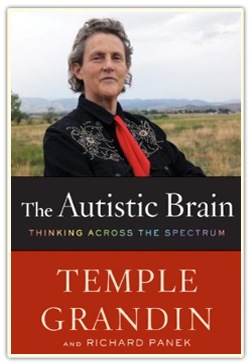 Click image above to play audioI hope to post a new episode of Books and Ideas before the end of the summer. Meanwhile the Brain Science Podcast is heading toward episode 100! Last month's episode (BSP 98) was a discussion of The Autistic Brain: Thinking Across the Spectrum by Temple Grandin. This book is a tremendous gift, not just to patients and their families, but also to teachers, mentors, friends, and everyone who is interested in understanding how our brains make us who we are.
Click image above to play audioI hope to post a new episode of Books and Ideas before the end of the summer. Meanwhile the Brain Science Podcast is heading toward episode 100! Last month's episode (BSP 98) was a discussion of The Autistic Brain: Thinking Across the Spectrum by Temple Grandin. This book is a tremendous gift, not just to patients and their families, but also to teachers, mentors, friends, and everyone who is interested in understanding how our brains make us who we are.
I think that this is a book everyone should read because as we come to appreciate the fact that the strengths and challenges of autism occur across a broad spectrum, we may also realize that some of these issues actually affect people who aren't considered autistic. It is not the label that matters. What does matter is recognizing that each of us has his or her own strengths and weaknesses, but thanks to brain plasticity, we all have the potential to nurture our strengths and, when necessary, accommodate our weaknesses.
Please visit the Brain Science Podcast website for full show notes and free episode transcripts.
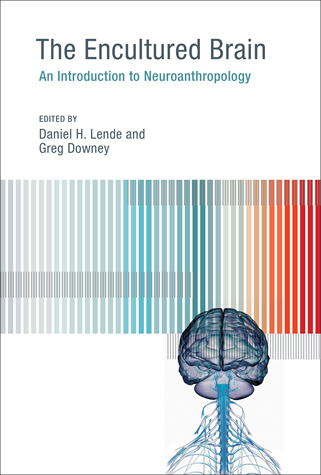 Featured on BSP 97The latest episode of the Brain Science Podcast (BSP 97) is a conversation with Daniel Lende and Greg Downey, editors of The Encultured Brain: An Introduction to Neuroanthropology. We explore how neuroscience and anthropology can work together to unravel the mystery of how our brains make us who we are.
Featured on BSP 97The latest episode of the Brain Science Podcast (BSP 97) is a conversation with Daniel Lende and Greg Downey, editors of The Encultured Brain: An Introduction to Neuroanthropology. We explore how neuroscience and anthropology can work together to unravel the mystery of how our brains make us who we are.
Listen to BSP 97 (or download mp3)
Click here for complete show notes and the FREE episode transcript.
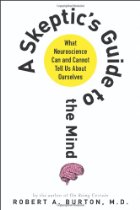 The latest episode of the Brain Science Podcast (BSP 96) marks the return of one of my favorite guests: retired neurologist and author Dr. Robert Burton. We discussed his new book A Skeptic's Guide to the Mind: What Neuroscience Can and Cannot Tell Us About Ourselves. In this book Dr. Burton expands on the ideas he first presented in On Being Certain: Believing You Are Right Even When You're Not. He also argues that because mental sensations like certainty, agency, and causation originate outside of conscious awareness there are inherent limits in our ability to use neuroscience to understand the Mind. This is a somewhat controversial and definitely thought-provoking position, which I invite you to explore further by listening to this interview.
The latest episode of the Brain Science Podcast (BSP 96) marks the return of one of my favorite guests: retired neurologist and author Dr. Robert Burton. We discussed his new book A Skeptic's Guide to the Mind: What Neuroscience Can and Cannot Tell Us About Ourselves. In this book Dr. Burton expands on the ideas he first presented in On Being Certain: Believing You Are Right Even When You're Not. He also argues that because mental sensations like certainty, agency, and causation originate outside of conscious awareness there are inherent limits in our ability to use neuroscience to understand the Mind. This is a somewhat controversial and definitely thought-provoking position, which I invite you to explore further by listening to this interview.
Go to Brain Science Podcast website for complete show notes and free episode transcripts.
 Last month we launched a completely redesigned website for the Brain Science Podcast. It is intended to be more accessible to people on mobile devices, but it also makes it easier for visitors to submit feedback directly from the site.
Last month we launched a completely redesigned website for the Brain Science Podcast. It is intended to be more accessible to people on mobile devices, but it also makes it easier for visitors to submit feedback directly from the site.
Here is a brief summary of our most recent episodes:
 Click image to listenBSP 95 is the second part of our discussion of Understanding Pain: Exploring the Perception of Pain by Fernando Cervero, who is the current president of the International Society for the Study of Pain. Dr. Cervero was interviewed in BSP 93 and in this episode I discuss additional key ideas from his book. (BSP 93 and 95 can be enjoyed in any order.
Click image to listenBSP 95 is the second part of our discussion of Understanding Pain: Exploring the Perception of Pain by Fernando Cervero, who is the current president of the International Society for the Study of Pain. Dr. Cervero was interviewed in BSP 93 and in this episode I discuss additional key ideas from his book. (BSP 93 and 95 can be enjoyed in any order.
Click here for the detailed show notes.
 Dr. Benjamin BergenBSP 94 was an interview with linguist Benjamin Bergen author of Louder Than Words: The New Science of How the Mind Makes Meaning.
Dr. Benjamin BergenBSP 94 was an interview with linguist Benjamin Bergen author of Louder Than Words: The New Science of How the Mind Makes Meaning.
Go to the complete show notes.
 Dr. Jaak Panksepp (click for audio)Episode 51 of Books and Ideas is actually a followup of Dr. Jaak Panksepp's recent interview on the Brain Science Podcast. There we talked in depth about the scientific evidence that humans share basic emotional circuitry with other mammals. In this interview we talk about the implications of this discovery, focusing on how it should impact the treatment of laboratory animals. We also consider our relationships with pets and other domestic species.
Dr. Jaak Panksepp (click for audio)Episode 51 of Books and Ideas is actually a followup of Dr. Jaak Panksepp's recent interview on the Brain Science Podcast. There we talked in depth about the scientific evidence that humans share basic emotional circuitry with other mammals. In this interview we talk about the implications of this discovery, focusing on how it should impact the treatment of laboratory animals. We also consider our relationships with pets and other domestic species.
Listen to Episode 51 of Books and Ideas
Episode Transcript (Download Free PDF)
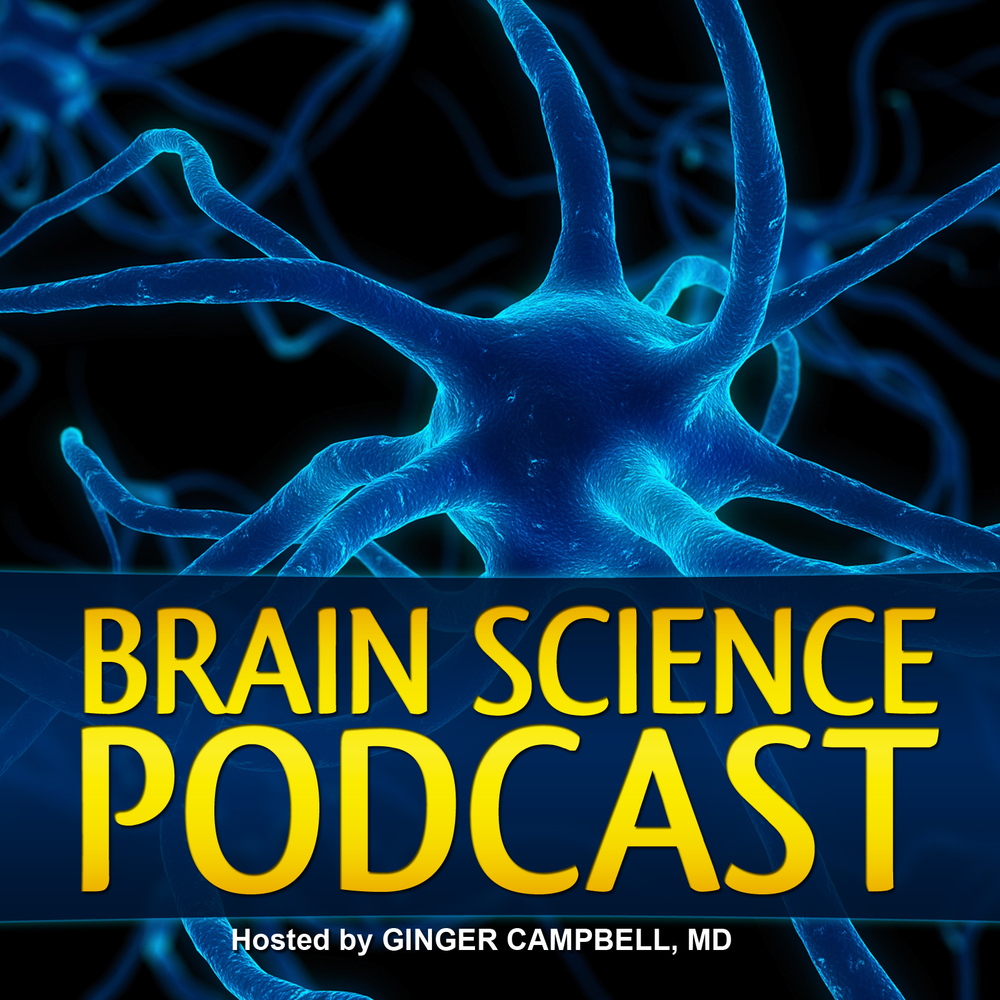 Click Logo to ListenDr. Fernando Cervero of McGill University has been studying pain since the beginning of his career back in the 1960's. These decades have seen tremendous advances in our neuroscientific understanding of what causes different types of pain as well as changing attitudes. Pain was once regarded as something that most people had to endure, but now most of us demand adequate pain relief, sometimes even to the point of not tolerating minor pain. Dr. Cevero's new book Understanding Pain provides an accessible account of both the history of pain research and a thoughtful consideration of the challenges facing the field.
Click Logo to ListenDr. Fernando Cervero of McGill University has been studying pain since the beginning of his career back in the 1960's. These decades have seen tremendous advances in our neuroscientific understanding of what causes different types of pain as well as changing attitudes. Pain was once regarded as something that most people had to endure, but now most of us demand adequate pain relief, sometimes even to the point of not tolerating minor pain. Dr. Cevero's new book Understanding Pain provides an accessible account of both the history of pain research and a thoughtful consideration of the challenges facing the field.
The latest episode of the Brain Science Podcast (BSP 93) is an interview with Dr. Cervero. This is Part 1 of a planned two part series.
Click Here for Detailed Show Notes and Episode Transcripts
Subscribe to the Brain Science Podcast: 
![]()
 Ted Meisner (click to listen)I recently had the opportunity to be a guest on The Secular Buddhist podcast, which is hosted by Ted Meisner. We talked about neuroscience and my new eBook Are You Sure? The Unconscious Origins of Certainty. I enjoyed learning about the Secular Buddhist Association, which is an outgrowth of the podcast, but I was surprised that listener feedback indicated that many listeners have a poor understanding of Buddhism and how it relates to Secularism. That is why I invited Meisner to come on my Books and Ideas podcast.
Ted Meisner (click to listen)I recently had the opportunity to be a guest on The Secular Buddhist podcast, which is hosted by Ted Meisner. We talked about neuroscience and my new eBook Are You Sure? The Unconscious Origins of Certainty. I enjoyed learning about the Secular Buddhist Association, which is an outgrowth of the podcast, but I was surprised that listener feedback indicated that many listeners have a poor understanding of Buddhism and how it relates to Secularism. That is why I invited Meisner to come on my Books and Ideas podcast.
I have just posted this interview as Episode 50:
![]() Listen to Episode 50 of Books and Ideas
Listen to Episode 50 of Books and Ideas
Episode Transcript (Download FREE PDF)
Subscribe to Books and Ideas Podcast: ![]()
![]()
![]()
![]()
 Dr. Jaak Panksepp (click to play audio)In his new book The Archaeology of Mind: Neuroevolutionary Origins of Human Emotions Jaak Panksepp set out to make his life's work more accessible to a general audience. To be honest, reading this book requires a significant commitment, but I think he does a wonderful job of updating his classic textbook Affective Neuroscience. Anyone who is interested in this field will definitely want this book as a reference. The other strength of Archeology of Mind is its evolutionary approach. The primary emotional processes that Panksepp has spent his career studying have their origins in the ancient parts of the brain that are shared by all mammals. This contradicts longstanding assumptions in neuroscience, but it has important implications for both humans and other animals.
Dr. Jaak Panksepp (click to play audio)In his new book The Archaeology of Mind: Neuroevolutionary Origins of Human Emotions Jaak Panksepp set out to make his life's work more accessible to a general audience. To be honest, reading this book requires a significant commitment, but I think he does a wonderful job of updating his classic textbook Affective Neuroscience. Anyone who is interested in this field will definitely want this book as a reference. The other strength of Archeology of Mind is its evolutionary approach. The primary emotional processes that Panksepp has spent his career studying have their origins in the ancient parts of the brain that are shared by all mammals. This contradicts longstanding assumptions in neuroscience, but it has important implications for both humans and other animals.
In Episode 91 of the Brain Science Podcast Dr. Panksepp and I talked about some of the new information contained in Archeology of Mind with a particular focus on FEAR, which contrary to what many researchers claim, does NOT begin in the amygdala, but begins much lower. We do talk briefly about the experimental evidence, but this was covered in more detail during Dr. Panksepp's previous appearance on the Brain Science Podcast in BSP 65.
Click here for detailed shownotes and free transcript.
 Episode 90 of the Brain Science Podcast is a discussion of Self Comes To Mind: Constructing the Conscious Brain by Antonio Damasio. Damasio's book focuses on the answer to two key questions: How does the brain generate the Mind? and How does the Brain generate Consciousness? His approach is unusual because many scientists and writers treat the Mind and Consciousness as identical. In contrast, Damasio argues that Mind proceeds Consciousness. Listen to this podcast to learn how the Mind becomes Conscious.
Episode 90 of the Brain Science Podcast is a discussion of Self Comes To Mind: Constructing the Conscious Brain by Antonio Damasio. Damasio's book focuses on the answer to two key questions: How does the brain generate the Mind? and How does the Brain generate Consciousness? His approach is unusual because many scientists and writers treat the Mind and Consciousness as identical. In contrast, Damasio argues that Mind proceeds Consciousness. Listen to this podcast to learn how the Mind becomes Conscious.
Click here for show notes and free episode transcript.
Subscribe to the Brain Science Podcast: ![]()
![]()
![]()
![]()
 Evan Thompson, PhDEmbodied Cognition is a movement within cognitive science that argues that the mind is inseparable from the fact that the brain is embedded in a physical body. This means that everything that the brain does, from the simplest perception to complex decision-making, relies on the interaction of the body with its environment. Evan Thompson's book Mind in Life: Biology, Phenomenology, and the Sciences of Mind is an in depth look at what he calls the "enactive" approach to embodied cognition. The enactive approach was pioneered by Thompson's mentor Francisco Varela and it emphasizes the importance of the body's active engagement with its environment.
Evan Thompson, PhDEmbodied Cognition is a movement within cognitive science that argues that the mind is inseparable from the fact that the brain is embedded in a physical body. This means that everything that the brain does, from the simplest perception to complex decision-making, relies on the interaction of the body with its environment. Evan Thompson's book Mind in Life: Biology, Phenomenology, and the Sciences of Mind is an in depth look at what he calls the "enactive" approach to embodied cognition. The enactive approach was pioneered by Thompson's mentor Francisco Varela and it emphasizes the importance of the body's active engagement with its environment.
In a recent interview (BSP 89) I talked with Thompson about some of the key ideas in Mind in Life. Unlike most episodes of the Brain Science Podcast, this is not really a stand-alone episode. It is part of my ongoing exploration of both embodied cognition and the controverial topic of emergence. It is also intended as a follow-up to my recent interview with Terrence Deacon.
Click here for complete show notes and the free episode transcript.
Subscribe to the Brain Science Podcast: ![]()
![]()
![]()
![]()